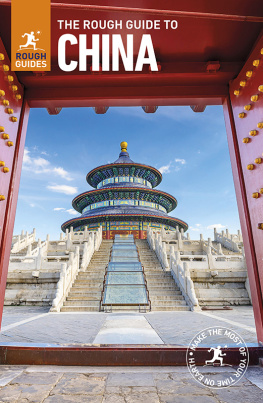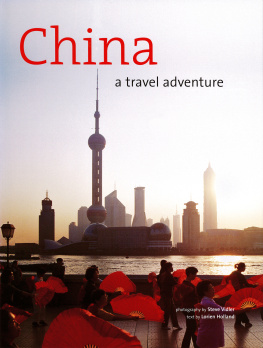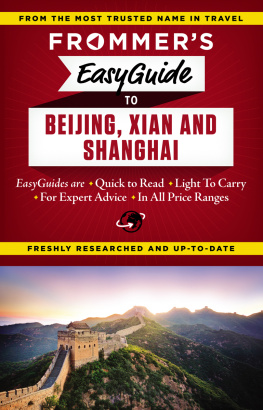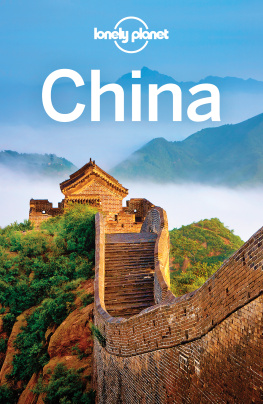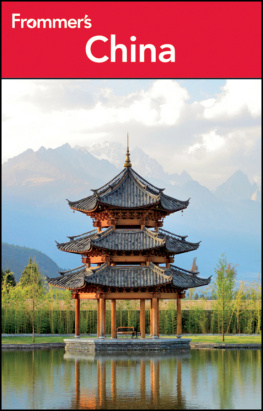China
Where To Go, What To See
-
A China Travel Guide
Copyright 2016 by Worldwide Travellers - All rights reserved.
The contents of this book may not be reproduced, duplicated or transmitted without direct permission from the author.
Table Of Contents
Chaper 1: Introduction
China compels, the world's oldest continuous civilization a roller-coaster ride through captivating contradictions. History buffs immerse themselves, cultural explorers smile as they delve deeper, city breaks are covered, and it would take years to fully discover the eclectic nature on offer. Exotic narratives are omnipresent, blending with the futuristic design and millennia old towns. No country can offer such diversity or deliver such a wide reaching appeal. Yet at the heart of the experience, despite the juxtapositions and inimitability, China is irrefutably China: absolutely unique and unforgettable.
Is there a travel paradigm that the country doesn't offer? Ancient towns deliver shocks of intrigue, like the barefoot monks who walk down cobblestone alleys to historic temples. Then skyscrapers and the ultramodern welcome you to cities of enthusiasm and flashing lights. Wander through the bamboo forest and javelins of light reveal snow capped mountains in the distance. Warriors of terracotta stand beside fortress walls while rural communities retain their inimitability in far flung corners. Meet hundreds of confident students with perfect English, then laugh at the locals who clandestinely take photos of the white person. China offers a dozen different vacations and hundreds of distinct destinations, each confirming that the country is no mere single stereotype. It's as if a whole continent is at the tip of your fingertips, each direction pointing you to something mesmerizingly new.
From the moment you land to the moment you leave there's never any question, never a semblance of doubt about where you are. This is China. It's written onto every face, every street corner, every journey, and every destination. Even in the states annexed by China like Tibet the mark of China never leaves. And China is not like anywhere else. It's confusing and challenging. There's limited special treatment. For the most part, you must jump in with two feet and absorb the good and the bad, from deciphering Chinese calligraphy to spending weeks exclusively eating local food.
At the same time, China's greatest appeal is its sheer sundry of destinations. No two travelers' itineraries are the same. In fact, most travelers won't even cross paths. Head south to forests and mountains, east to cities, down the middle for history, west to historic cultures, and you're only just glimpsing what's on offer. So welcome to China. Welcome to a land that rolls like no other, a place that borders on the surreal and is always sublime. You'll be glad you took the plunge.
Chapter 2: Welcome to China
China at a Glance
China stretches further than the imagination can follow. From the Himalayan mountains that border Pakistan to the rough seas that gaze across at Japan. From arid desert next to Mongolia to lush forests and tropical islands in the south. A new high speed train connects Beijing to Lhasa in Tibet. It takes 38 hours and this journey traverses less than half the country. The country seems to redefine notions of size and geographical barriers add further complications to travel. Anyone attempting to see it all is madly optimistic. Anyone claiming to have seen it all is lying.
China can suit people with any length of time or budget. Even for a few days you can get a glimpse and sense of the country, albeit in just one place. Whole regions can be explored if you have one to two weeks, and the growing collection of airports enable you to stuff different vacations into a handful of action packed days. Travel for longer and China will keep entertaining, whether you're coming for a few weeks or a few months.
Beijing is the capital, tucked away in the northeastern corner and reveling in its historical charm. The economic hub of Shanghai is situated half way down the East Coast and a flurry of flashing lights welcome you to a city with more people than most the world's countries. Down on the southern coast is Hong Kong part China, part independent state. These three cities are important as they form the basis of a high speed transport channel that runs through the eastern and coastal side of the country.
The western half of China is rural and arid, dominated by the Tibetan plateau and a challenging climate. Travel here is much slower and more difficult, the reward coming from discovering cultures that challenge the ethnic Han majority. Tibet and Northwestern China are poles apart from the East of the country.
Between Northwestern China and the East Coast, the country is heavily marked by industry and cities of ten million inhabitants that the world has hardly ever heard of. Lost amongst the smog are dozens of ancient beguiling destinations, each reliving a different dynasty and allowing an escape into new paradigms.
As the Himalayas descend east of Tibet, most of Southern China is remarkably lush and green. This is a region of bamboo forests, river journeys, limestone karsts, and alpine lakes. Like most of the country, historic towns are dotted amongst it all.
Despite the fact that some Chinese journeys are measured in days, not hours, getting between destinations is far easier than most imagine. 20 years ago the situation would have been different. But airports are springing up everywhere, enabling multiple destinations to open up to those with minimal time. The train services have always been excellent and they continue to improve. Many long distance journeys are scheduled to travel overnight, so with a comfortable air-conditioned sleeper, you drift off in the mountains and wake up on the coast.
Like all things China there are vast disparities between regions. Distance on a map is never an accurate indicator of how long a journey will take. For example, in Sichuan province it can take 8 10 hours to cover 200 miles in a rickety bus. On the East Coast, that distance takes little over an hour. Communication barriers and accommodation quality also heavily depends on where you are.
But let's dwell on the positives here. It wasn't that long ago that all of China was a very challenging destination to travel in. While some regions still pose difficulties, it adds doses of excitement. For the rest, the country's remarkable transformation is finally making some of the world's most unique experiences accessible to the world. So forget your preconceptions: You'll get on just fine in China.
Iconic Experiences
China isn't short of the iconic and unforgettable. Here's a quick flavor to get you excited:
No world landmark can compete with the scale of the Great Wall of China. It can
be explored at a series of destinations near Beijing as well as in the central regions.
Dazzling with evening neon lights, Shanghai's Pudong District is the futuristic face
of Asia, filled with sublime views and revolving restaurants.
Exquisite limestone karsts guide your journey through the forest clad mountains of
south China, evocative Guilin the most impressive of the region's natural attractions.
The eastern terminus of the Old Silk Road, Xian was the capital of China for over
1000 years, and its relics span across the times of 73 different emperors.
In a couple of towns in Tibetan Sichuan, high up Buddhist monks are buried by
having their bodies left to the vultures in a remarkable sky burial.
The renowned backpacker hangout of Dali is a place where travelers can easily get



